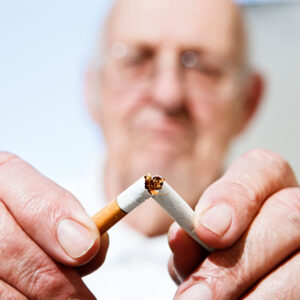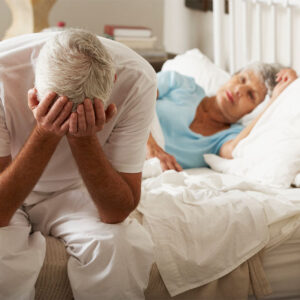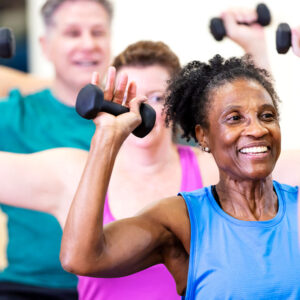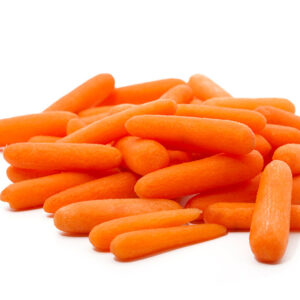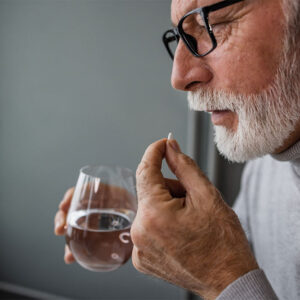
Want to Fight Coronavirus? Beware of this Mainstream Advice
Health organizations are full of advice about preventing infection with coronavirus.
Wear masks in public.
Wash your hands.
Don’t touch your face.
Social distance.
You know the drill by now.
But there’s one piece of advice doled out by mainstream organizations that could not only increase your risk of getting sick… but can also make you more likely to experience more severe COVID-19 infection if you do become sick.
Here’s what you need to know to protect yourself.
The mainstream always warns people about the dangers of the sun, when the truth is that the sun is absolutely essential for health and life.
Toss in the advice to self-quarantine, and you’re left with countless people who are locked inside, missing out on the benefits of the sun’s rays.
And that could be VERY dangerous when it comes to beating coronavirus.
Because low levels of vitamin D (which your body makes from the sun) can increase your risk of developing a severe case of COVID-19.
Researchers compared the blood levels of vitamin D in people who tested negative for COVID-19 to the vitamin D levels of those who tested positive—and to those who were hospitalized.
Of the people they screened, the average vitamin D levels of those who did not have the coronavirus were in the normal range.
However, the average vitamin D levels of those who tested positive were too low. And those who were older with low D levels were more likely to experience more severe infections.
In fact, people over 50 with low D were twice as likely to be admitted to the hospital with COVID-19 than those with normal levels.
And people 25-29 with low D were 1.45 times more likely to be admitted to the hospital with COVID-19.
The researchers believe that vitamin D helps your body fight off the infection once you do get it, which would explain why the people with higher levels of vitamin D only had mild effects and didn’t need to be hospitalized.
Some people are quick to warn you that a study like this doesn’t prove that vitamin D prevents or reduces the impact of the coronavirus.
Of course it doesn’t.
But we’re not talking about taking a dangerous drug. We’re talking about making sure your body has enough of something it needs for optimal health. And if it can help your fight the coronavirus too?
Even better.
This study is yet another reason to make sure your vitamin D levels are up to snuff—especially as we’re about to head into winter, when vitamin D levels tend to drop off in most people.
The single best way to do that is to spend more time in the sun.
But while being responsible, wearing your mask, and social distancing are all beneficial, locking yourself away is not.
Drink your coffee outside in the mornings. Take a walk in the afternoon.
Do some gardening.
However you do it, just make sure you’re getting plenty of sunshine every day.
And if you want some tips on how to include more vitamin D in your diet, stay tuned for Monday’s article.
I’ll give you 6 of the best vitamin D foods to help boost your levels.
Written By Dr. Richard Gerhauser, M.D.
For years he’s been the trusted doctor for celebrities, world-class athletes, and countless seniors looking to reclaim their health.
And now…for the first time ever… he’s making his medical breakthroughs available to readers all across America.
Dr. Richard Gerhauser, M.D. is one of the most pioneering and innovative minds in medicine today – and he delivers cutting-edge cures each month through his Natural Health Response newsletter.
Natural Health Response readers get full access to Dr. Gerhauser’s protocols for chronic pain… heart disease… diabetes… Alzheimer’s… and even cancer. These are the very same treatments Dr. Gerhauser recommends to his own patients at his practice in Tucson, Arizona.
In addition to being a board-certified medical doctor, Dr. Gerhauser has earned two master’s degrees and has served as a clinical professor at the University of Arizona.
And as a physician at the world-famous Canyon Ranch, Dr. Gerhauser treated celebrities from around the world who paid dearly for the type of next-generation health information he provides Natural Health Response readers each month.
View More Free Articles
Mother Nature's Bone-Building Secret REVEALED
Mainstream medicine has peddled the same old song and dance about osteoporosis for years. Pop some calcium pills… do some jumping jacks… and cross your fingers that your bones don’t crumble like a stale cookie. But what if I told you Mother Nature has been hiding a bone-building secret right under our noses? And we […]
The INCREDIBLE Payoff for Delaying Diabetes
If you don’t know where your blood sugar levels stand, it’s time to get them checked. It’s estimated that one in three adults has prediabetes, yet 80 percent of these folks have NO IDEA they’re in this category. That’s a BIG problem because most people will develop type 2 diabetes within just five years of […]
The Biggest Dementia Risk Factor REVEALED
I’m sure you’re familiar with the Skeleton Dance song… “The foot bone is connected to the leg bone. The leg bone is connected to the knee bone…” It’s easy to think of our bones being linked because we can physically see them. What’s less obvious is that everything else about your health is JUST as […]
It's NEVER Too Late to Kick This Dangerous Habit
You’ve heard it a million times before: “Smoking is bad for you.” If you’re still lighting up, I bet you remember a time when smoking wasn’t just accepted—it was downright fashionable. Remember when you could smoke in restaurants, on airplanes, and even in hospitals? Heck, movie stars even made it look cool and sophisticated. Well, […]
The TRUTH About ED No One's Talking About
It’s a subject most men would rather sweep under the rug… erectile dysfunction (ED). But you’re not alone if you’re having trouble in the bedroom. In fact, ED affects up to 30 million men in the U.S. alone. However, popping a little blue pill isn’t the answer. ED drugs are often just slapping a Band-Aid […]
Don’t Let Muscle Loss RUIN Your Golden Years
For older women, muscle mass can take a nosedive after menopause. This means more than trouble carrying in the groceries. Over time, the decline in muscle mass can lead to mobility problems, balance problems, falls, and ultimately a loss of independence. Staying active is a critical piece of the puzzle. But now, researchers have discovered […]
The Bad Habit Causing Lupus
All autoimmune diseases are on the rise—but lupus is one of the worst. When the condition strikes, your immune system starts to attack healthy tissues. Lupus cases have increased by 60 percent in women and have increased six-fold in men over the past four decades. What’s driving this dramatic increase? Well, we might have found […]
SHOCKING Missing Piece of the Diabetes Puzzle Discovered
I’ve been saying for years that there’s MORE to type 2 diabetes than your weight—or even your diet. Sure, they play their part. But unless you’re adding in THIS missing piece of the puzzle, you could be increasing your risk of type 2 diabetes despite your best efforts to avoid it. And you’ll never guess […]
Ditch the Chips and DEFY Aging
Sometimes, you just want something to crunch on. The craving can send even the most health-conscious among us heading straight to the snack aisle. But before you reach for the potato chips—which can contain all kinds of harmful ingredients—I have a better idea. Try THIS crunchy, healthy snack instead of loading up ingredients that can […]
Is Aspirin DEADLY? (Get the Truth Here)
Old habits die hard… especially when we’ve been led to believe they’re good ones. We were told for years that taking an aspirin a day would lower the risk of heart attack and stroke. But for many, those were empty promises that came with a LOT of risk… and LITTLE reward. That’s why, if you’re […]



